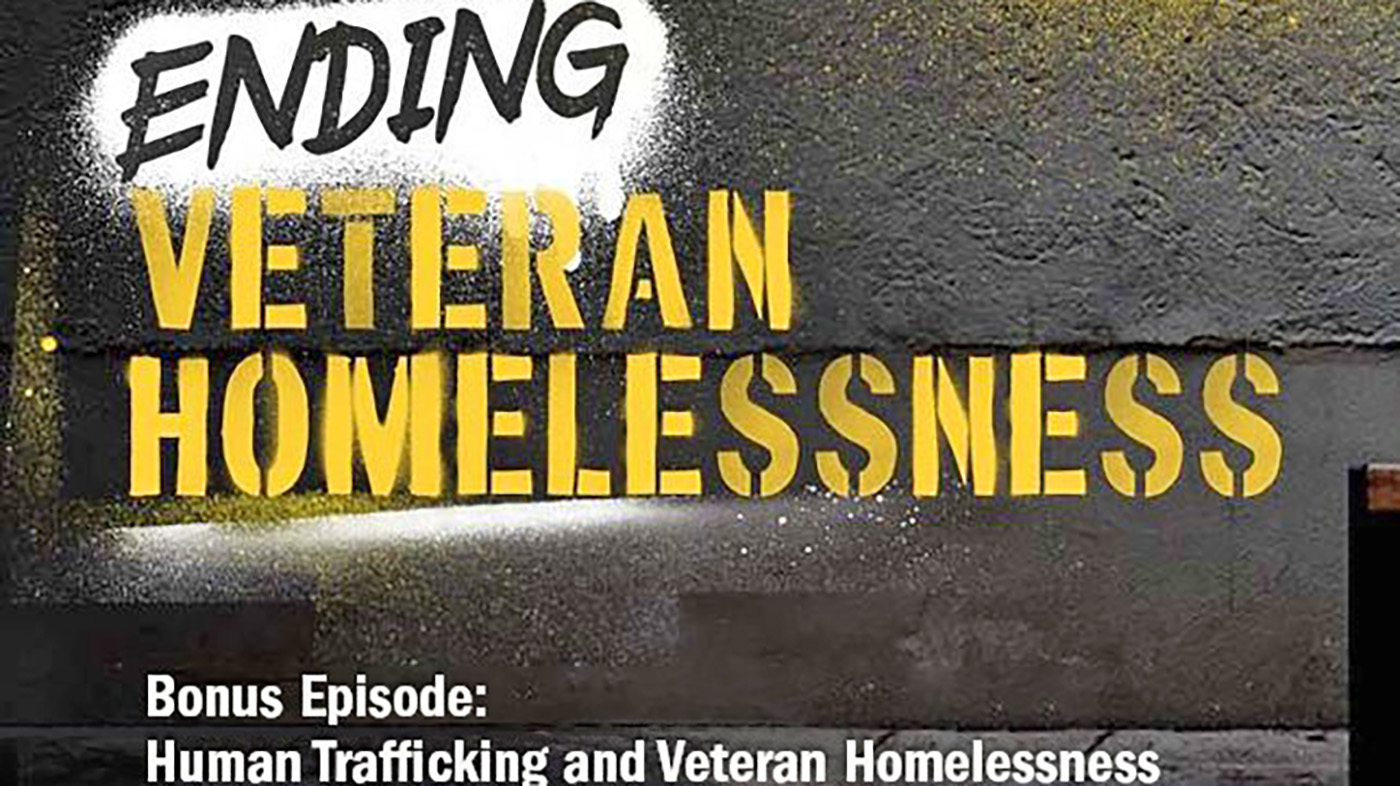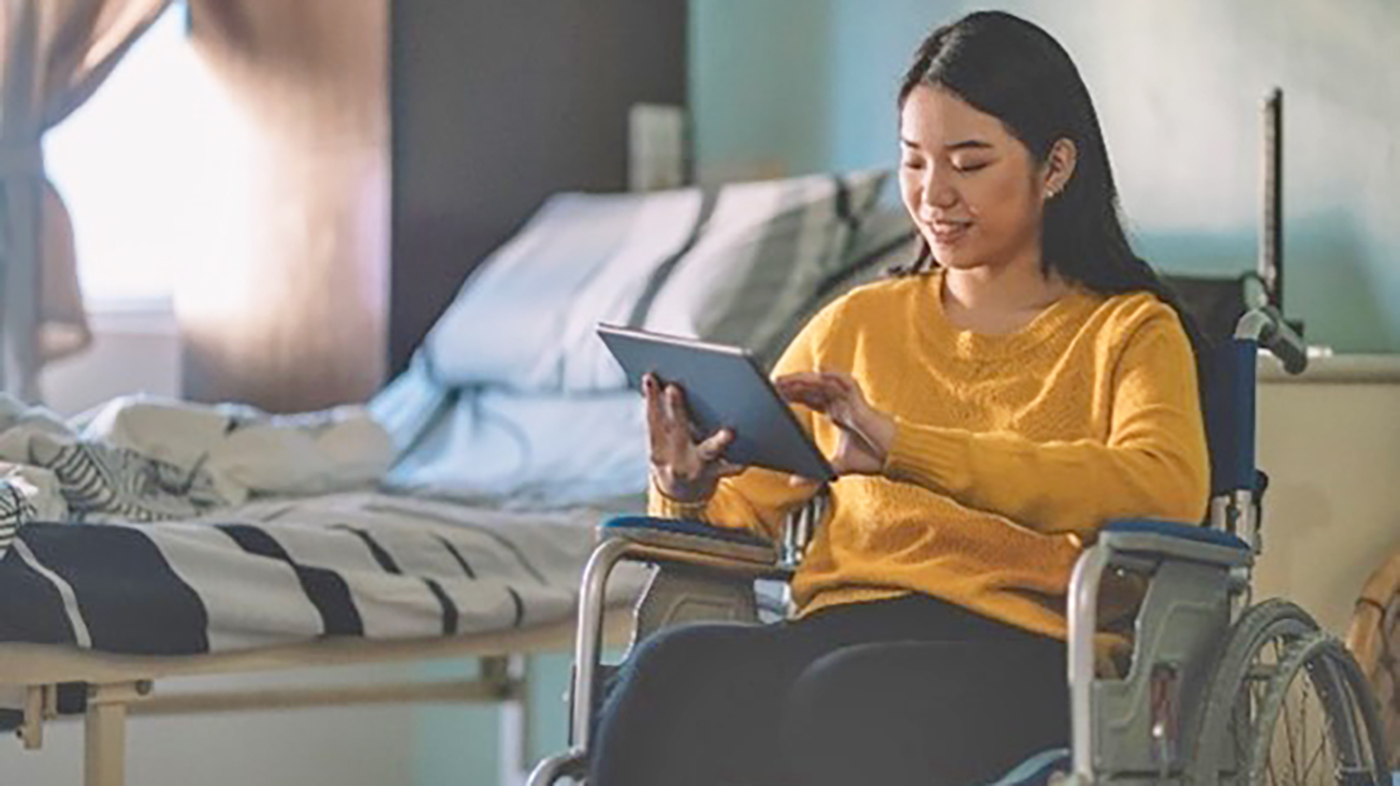As a social worker at Battle Creek VA, Katie Papke noticed a growing number of homeless Veterans were victims of human trafficking. She knew of five in Grand Rapids, Michigan, alone.
It was the summer of 2020 and this problem was still flying under the radar. It seemed that Veterans, particularly homeless Veterans, were increasingly at risk of being exploited by human traffickers.
Papke took her concerns to the national social work program office and, from there, VA’s effort to prevent human trafficking was born.
On a recent bonus episode of the Ending Veteran Homelessness podcast, Papke joined Amy Ashcraft of VA’s National Human Trafficking Prevention and Education Committee to talk about these endeavors.
A vulnerable population
The VA National Human Trafficking Prevention and Education Committee is working to counter misconceptions and preconceived notions around what human trafficking is, who is at risk and how to identify and support victims.
Often portrayed in the media as exclusively sex trafficking, human trafficking is forced labor of any kind, including commercial sex acts and other types of labor, obtained through coercion, force or fraud.
Papke describes it as a crime that’s hidden in plain sight. It happens to people from all walks of life in all areas of the United States and can be perpetrated by strangers, partners, family members, friends and even parents.
Traffickers seek out the most vulnerable and desperate among us. They will target homeless shelters, offering individuals a place to live and false promises in exchange for forced work and using a person’s fear of returning to the street against them.
“Sometimes individuals in a housing crisis reach out to all types of people and resources and become desperate to find ways to either keep them housed or get them housed rapidly. At these pinnacle times, potential for human trafficking can occur,” Papke said.
Reducing the risk
In 2020, VA assembled a team to investigate the issue and found that 36% of VA staff had encountered a Veteran who was a victim of human trafficking. After training, 38% of that staff was able to recognize a past missed opportunity to further assess if a Veteran was being trafficked.
It can be hard to spot human trafficking—particularly labor exploitation—especially if the victim doesn’t know it’s a crime.
But that can change with training and education. At an organization as large as VA where we interact with millions of Veterans across the country, there are many opportunities for staff to spot red flags and provide help.
We’ve launched a two-year pilot program at six VA facilities to implement efforts to address trafficking and we’ll soon see what progress we’ve made.
Through our ongoing work to end Veteran homelessness, we can help Veterans find their way back to stability, reducing their risk of being targeted.
“VA has the resources to connect Veterans to services to avoid being trafficked,” said Ashcraft. “Through widespread awareness and educational campaigns like this, VA staff can open their eyes to what might be happening in our own backyard and provide support to our Veteran victims and survivors.”
Learn about VA programs
- If you are a Veteran who is homeless or at risk for homelessness, call the National Call Center for Homeless Veterans at 877-4AID-VET (877-424-3838).
- If you are concerned that you or someone you know may be a victim of human trafficking, contact the National Human Trafficking Hotline at 888-373-7888 or text HELP to 233733.
- Visit the VA Homeless Programs website to learn about housing initiatives and other programs for Veterans exiting homelessness.
- Check out the Ending Veteran Homelessness podcast to learn more about what VA is doing about Veteran homelessness.
- Learn how to get involved with housing homeless Veterans.
- Subscribe to the Homeless Programs Office newsletter to receive monthly updates about programs and supportive services for Veterans experiencing or at risk of homelessness.
Topics in this story
Link Disclaimer
This page includes links to other websites outside our control and jurisdiction. VA is not responsible for the privacy practices or the content of non-VA Web sites. We encourage you to review the privacy policy or terms and conditions of those sites to fully understand what information is collected and how it is used.
More Stories
Columbia VA’s robotic surgery teams completed their 800th robotic surgery and are on schedule to hit 1,000 by the end of the year.
In a decentralized clinical trial, Veterans can participate from their own homes or local VA instead of having to travel to a research site.
After serving in the Air Force for 25 years, Larry Wilson is now a My HealtheVet coordinator helping Veterans navigate their care.







It doesn’t seem to matter how much help is available, it’s obvious that some people are unwilling to take the first step to help themselves. They are quick to find excuses for their situation and never accept responsibility. I have nothing but great things to say about the Veterans Administration
People need to accept responsibility for poor decisions and accept the assistance available. Too often people blame the “system” for the failures they brought on themselves.
I do not trust nor do I have confidence in this corrupt veteran association and this fake democracy that is racist. The 57 % of veterans of color automatically are denied assistance benefits. What they are granted is criminal justice to be arrested. I’ve been homeless for dam 3 years. You people don’t give a dam and neither do your Faciast gov.
It doesn’t seem to matter how much help is available, it’s obvious that some people are unwilling to take the first step to help themselves. They are quick to find excuses for their situation and never accept responsibility
The VA hospital in Lake City Florida is worthless.the only help they gave me was morphine pills and a bottle of liquid morphine for 10 years and when a Florida Congress woman Elizabeth Porter saved my life now I’m hated .I’m in bad health I have a golfball sized hump on my back that they gave me I’m awake now cause my shoulder is hurting so bad I can’t sleep .I’m half n they are the worst kind.i haven’t seen my doctor in a year. They have tried to Baker act me 6 times not once did the police haul me away please help.